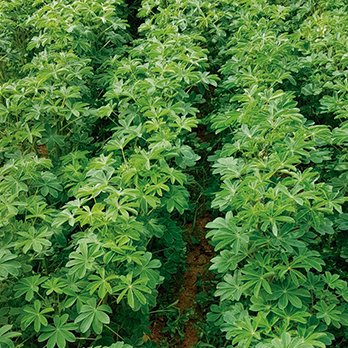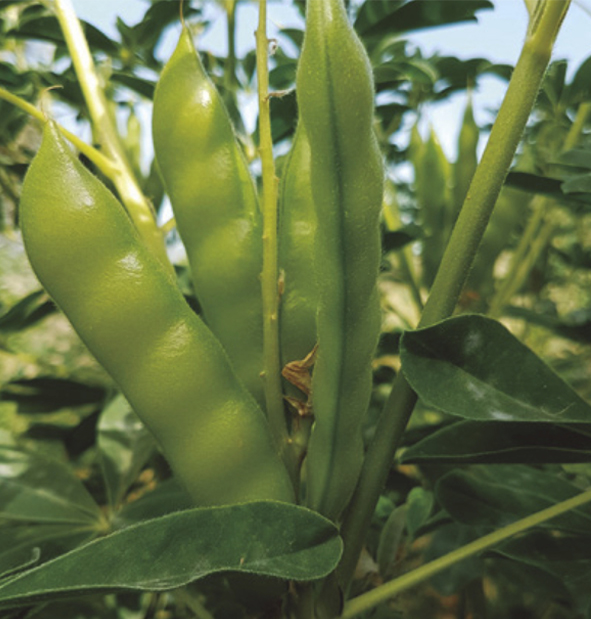Lupine or Lupinus is a vegetable generus that stands out for its incredibly high protein content (up to 38%). One of the aspects that makes it so interesting in Spain, is that it’s adapted to develop on acidic soils, very usual in the west of Spain.
It includes a series of species, all of them cultivated all around the word for human and animal nutrition (some varieties show, for example, high contents of carotenoids, very interesting for fodders for laying hens), although they’re also used in various industrial processes.
Lupine presents great plasticity and can adapt to cold areas and low fertility lands, that’s why it’s offered as a high performing alternative in discarded areas for other crops due to unproductivity. Finally, it’s important to highlight their capacities of improving the soil, as a leguminous, leaving between 50 and 60 units of nitrogen for the cultivation that comes next in the rotation. It’s a crop that, due to its morphology and location in areas where other crops can’t develop, controls the erosion.
In the face of a crop with such potential and very little known, Semillas Batlle, increases its selection of leguminous grains with great varieties of lupines (Lupinus albus y angustifolius). We also dispose of SWEET varieties which can be used directly for human and animal nutrition.



